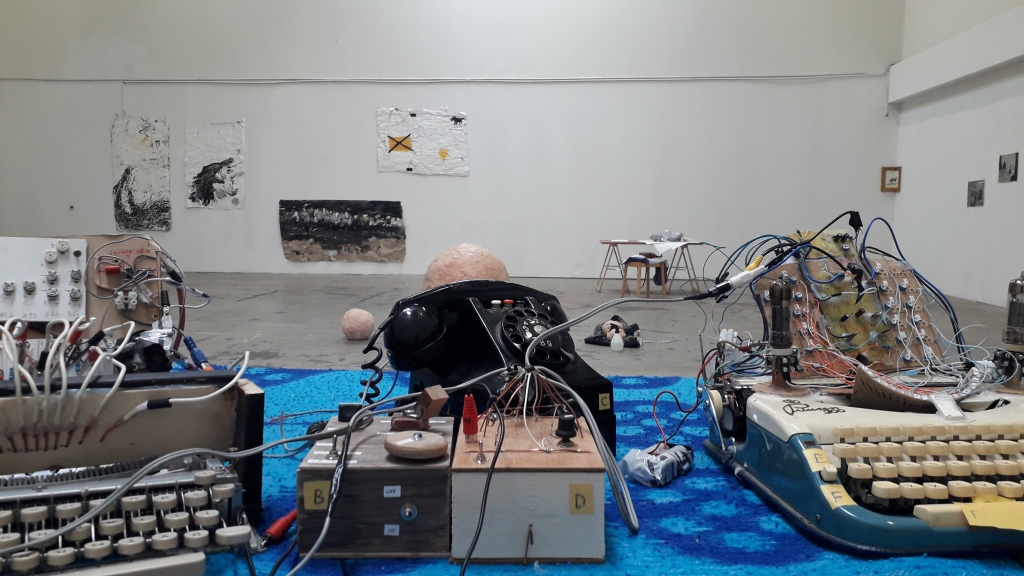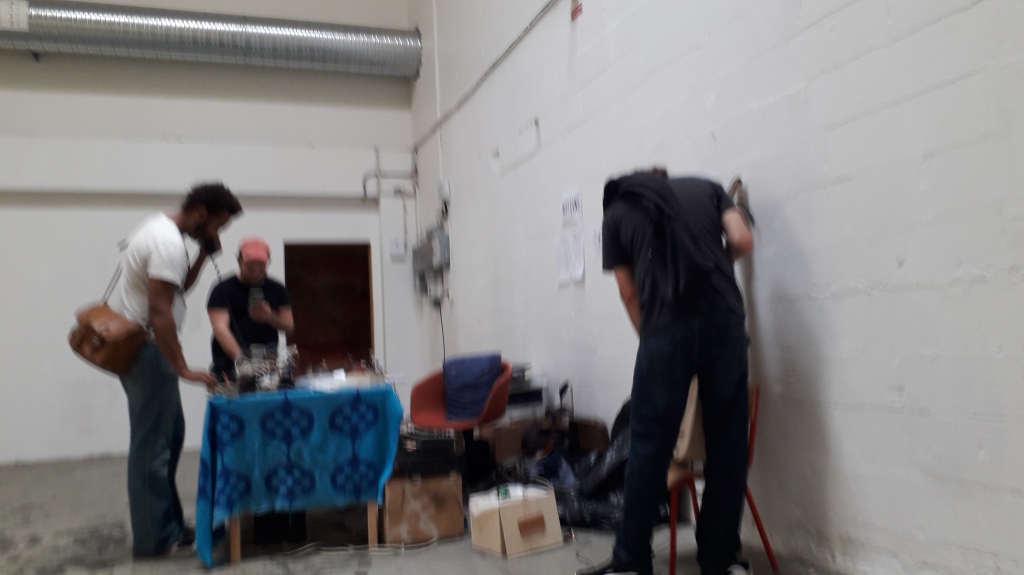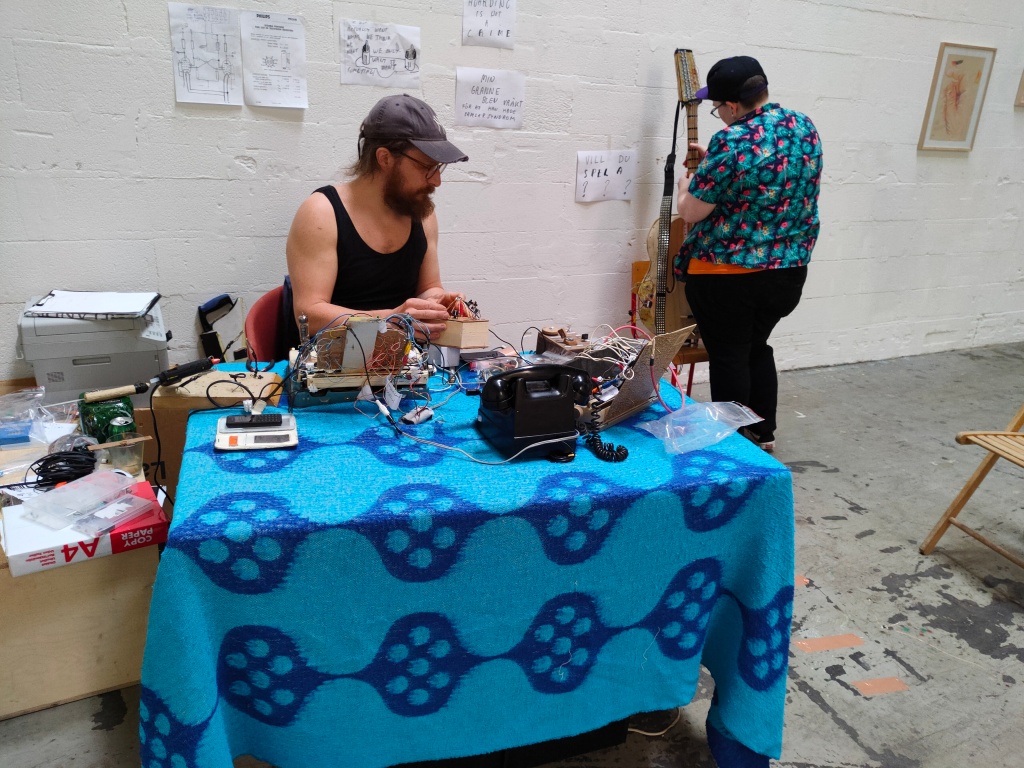Remember when this used to be fun?
Group exhibition
When was the last time you saw an artwork that was fun to look at?
When was the last time you made something that was fun to make?
When was the last time you made something that didn’t have to be approved by a committee of strangers before it could be made?
Can an artwork that is pushed through and moulded by a bureaucratic process still be fun?
Can it still represent personal, lived human experience?
How much can it relate to its viewers, to you and me?
If an artwork has to be approved by funding committees and academic juries before it is made, is artistic expression still free?
If training in application writing is necessary to make art, is artistic expression still free?
Is this art made for bureaucrats?
Are the bureaucrats having fun?
Within a system that puts intellectualisation, productivity, and efficiency above all else, can fun be subversive?
![]() Through this group exhibition we aim to question and nuance the current shift towards highly academicised, highly bureaucratised art – while at the same time making space for a more spontaneous, more autonomous, more playful mode of art-making.
Through this group exhibition we aim to question and nuance the current shift towards highly academicised, highly bureaucratised art – while at the same time making space for a more spontaneous, more autonomous, more playful mode of art-making.
![]() We are nine Gothenburg artists, all of whom work with/in artistic research, gathered to create and to present projects that we love, but which do not otherwise have space to exist within our institutional practices.
We are nine Gothenburg artists, all of whom work with/in artistic research, gathered to create and to present projects that we love, but which do not otherwise have space to exist within our institutional practices.
17th-19th June 2022
Participating artists: Kasra Seyed Alikhani, James Duffy, Reyhaneh Mirjahani, Johanna Oskarsson, Alexandra Papademetriou, Beate Persdotter Løken, Una Sigtryggsdóttir, Åke Sjöberg and Alexander Stevenson













Great thanks to all the people who showed interest in and /or played the instruments.
Without you no ”art” ❤ 🙂
Reflections on “remember when this used to be fun” 2022-06-18
- Initially, this process, that is of building musical instruments has been a very introverted activity, a thing to escape into, to hide from other people, and to let the social anxiety have a place to grow. But.
- Because we do not want what we think we want. (Zizek) Lacan. But we only what we can not imagen. ,, or scratch that.
- To go against myself, to go against my comfort zone of ”nerding”, I decided ”to nerd” in public, in a n art exhibition in a gallery, during the duration of the show.
- Because music makes the people come together, Madonna and Den Musikalse Slave. I try to jam with musicians, and let them jam with my instruments.
- Now I desire (want) to build a new and better typewriter synthesizer, why? Because of the up-fucked-ness of Lacanian desire, I can not desire that which I already have. Desire is the void between I and Ideal I, the desire is to bridge the void but all bridges give rise to new voids, just like I can never reach the horizon, no matter how far I travel. And that is because the horizon only exists as a relation between my current position and the curvature of the earth. Likewise is inside of the invisible internal logic of desire.
- It is about loneliness and the desire to stay alone, but the knowledge to know that what I really desire is human connection. Because it is the right thing to desire but not the easy thing.
- Carol Gilligan and Naomi Snider, in Why Patriarchy Persists, writes that patriarchy has a psychological function to protect us, to protect people from relations with other people by telling us the only way we will not be excluded from the “norm” society is by not engaging in relationships with other people. In a way this logically leads to the conclusion that patriarchy is “pro-nerding” because ”nerding” isolates individuals from each other, at least in my definition of ”nerding”, that is, engaging in an introvert collection of knowledge and things, sorting and combining them. Gilligan’s exact wording was not this but that patriarch protects us from loss of relation by making us leave relationships before they leave us.
- Social fishing. Like the hobby fisherman, sitting endlessly, waiting, with a hook and a bait, its like that, also, putting myself in the social sphere with a hook and a bait, protecting myself from loneliness by waiting in public, in a gallery, outside my physical comfort )location= zone, but within my comfort(activity) zone. In the introvert nerd-zone, just as before, drawing, sawing, note-taking, and bartending, I also have put myself in a comfort (role) by creating a host role for myself when I am in public.